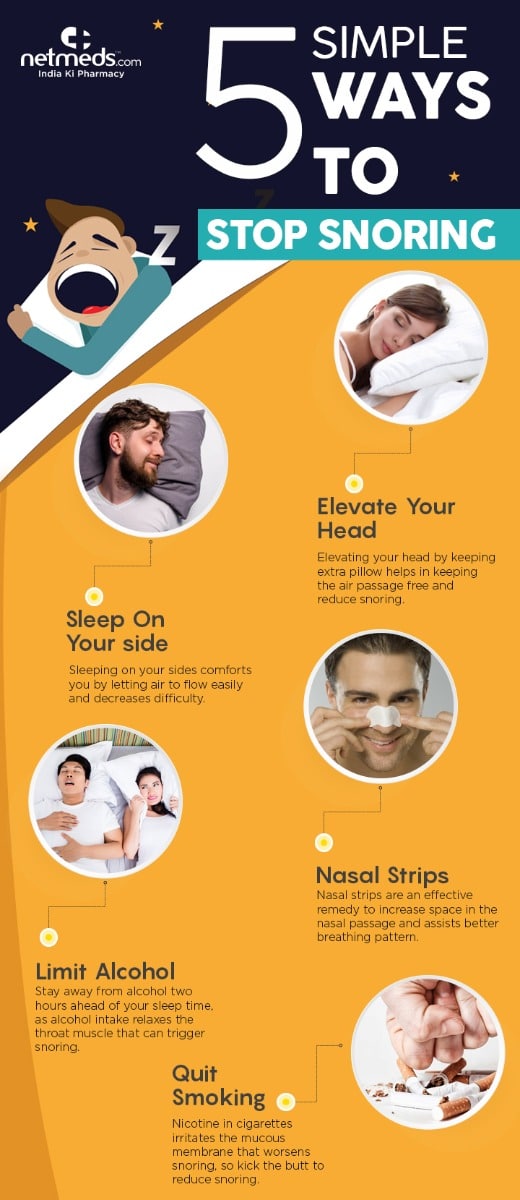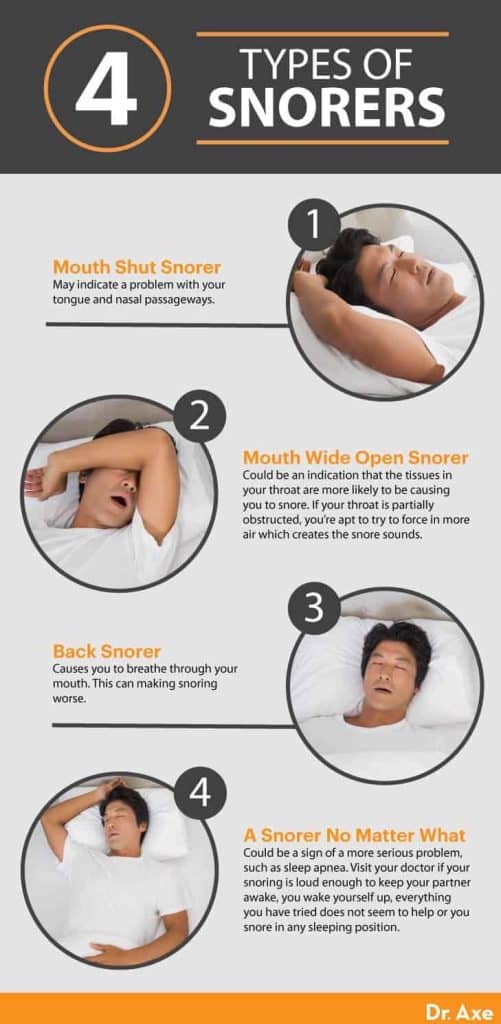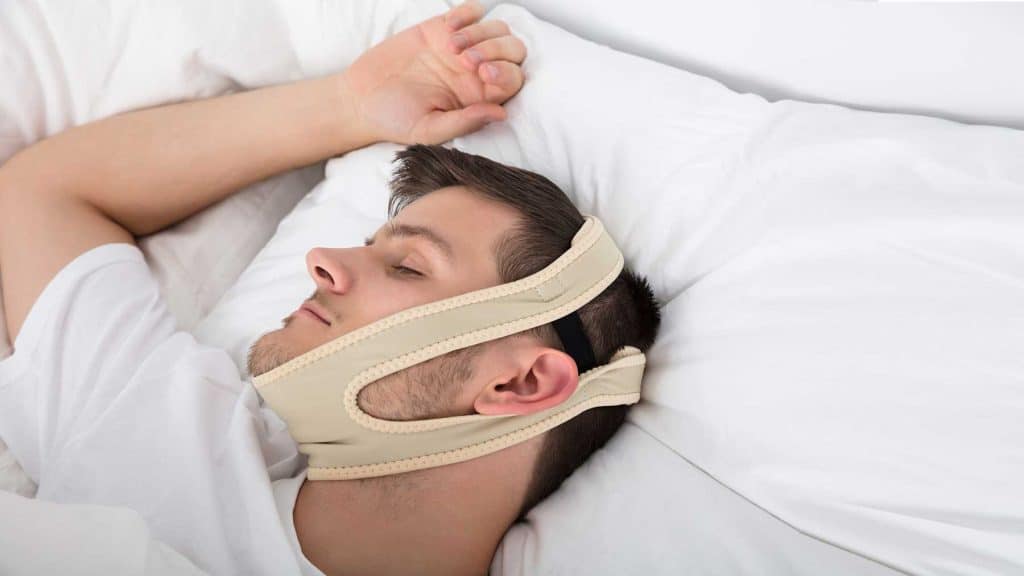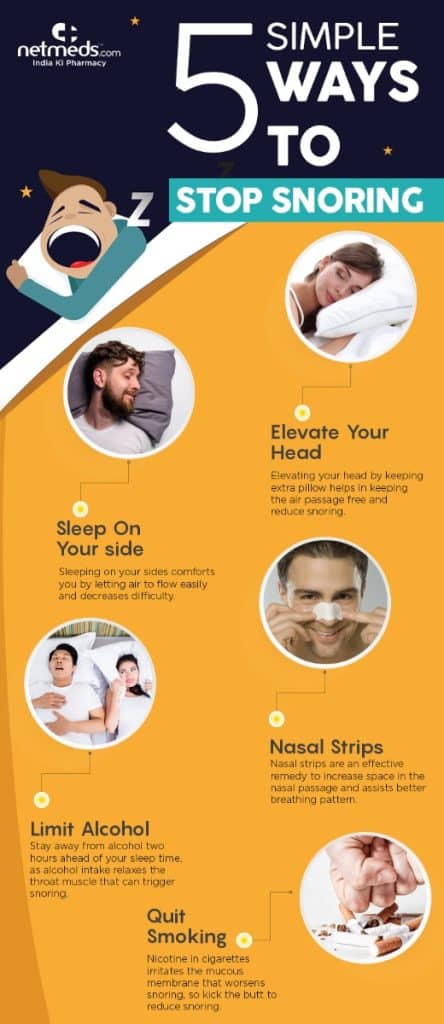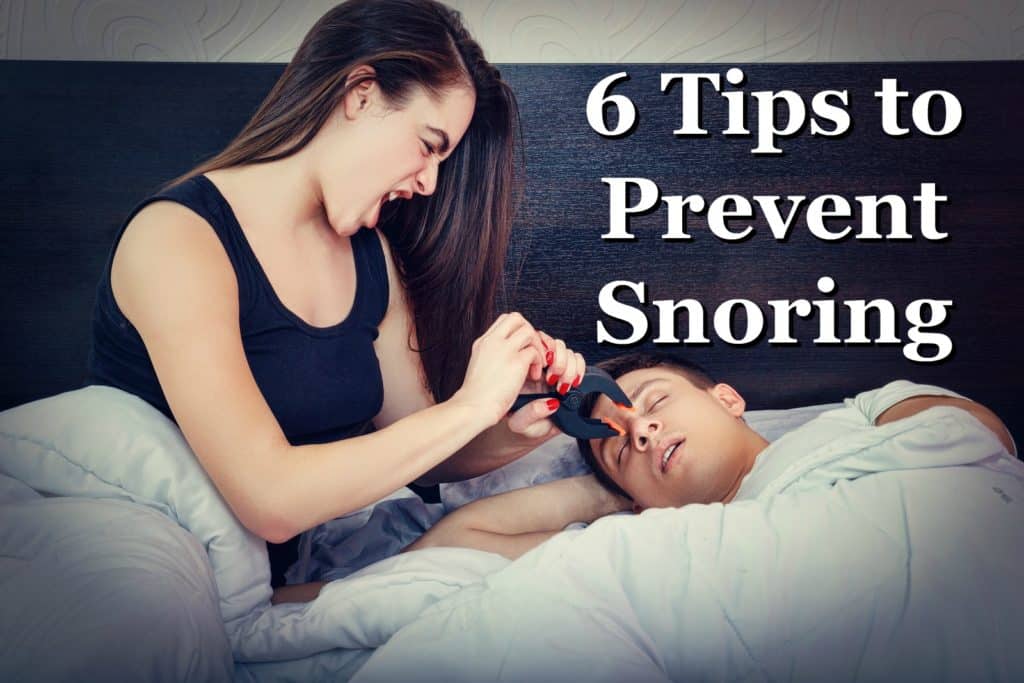Snoring can often be a nuisance, disturbing our sleep and the peace of those around us. Look no further if you’ve ever wondered how to diminish the constant noise.
This article will explore practical ways to minimize snoring, allowing you to enjoy a restful night’s sleep and maintain harmonious sleeping arrangements with your loved ones. From simple lifestyle changes to innovative devices, we’ve covered you with all the tips and tricks you need to reduce snoring and reclaim a peaceful night’s rest.
Review contents
Understanding the Causes of Snoring
Snoring can be an incredibly frustrating sleep disturbance, both for the person snoring and their bed partner. Understanding the underlying causes of snoring is essential to find effective ways to reduce or eliminate it. Several common factors contribute to snoring, including obstructed nasal airways, weak throat muscles, sleeping position, alcohol and sedatives, and being overweight or obese.
Obstructed nasal airways
One of the most common causes of snoring is obstructed nasal airways. When the nasal passages are blocked or congested, air can be challenging to flow freely during breathing. This can lead to the noisy vibrations that result in snoring. Allergies, sinus infections, and structural issues such as a deviated septum can contribute to nasal congestion and snoring.
Weak throat muscles
Another common cause of snoring is weak throat muscles. When the muscles in the throat become too relaxed during sleep, they can collapse and partially block the airway. This obstruction leads to the vibrations that create the sound of snoring. Weak throat muscles can be a result of aging, excessive alcohol consumption, and certain sleep disorders.
Sleeping position
The position in which you sleep can also influence snoring. Sleeping on your back can cause the base of your tongue and soft palate to collapse against the back of your throat, obstructing the airway and causing snoring. Changing your sleep position to sleeping on your side can often help reduce or eliminate snoring.
Alcohol and sedatives
Alcohol and sedatives are well-known contributors to snoring. Both substances relax the muscles in the throat, which can lead to increased snoring. If you are prone to snoring, it is best to avoid alcohol and sedatives before bedtime.
Overweight or obesity
Being overweight or obese can contribute to snoring due to the excess tissues in the throat and neck area. The additional weight can put pressure on the airway, causing it to narrow and leading to snoring. Maintaining a healthy weight through proper diet and regular exercise can help reduce snoring.
Lifestyle Changes
Fortunately, several lifestyle changes can be implemented to help reduce snoring. These changes focus on addressing the underlying causes of snoring and promoting overall sleep health.
Maintain a healthy weight.
As mentioned earlier, weight loss can be an effective way to reduce snoring, significantly if excess weight contributes to airway obstruction. Considering a balanced diet and engaging in regular physical exercise can aid in achieving and maintaining a healthy weight, reducing the severity and frequency of snoring.
Regular exercise
Regular exercise helps with weight management, strengthens muscles, and improves overall well-being. It can help tone the muscles in the throat and reduce the likelihood of them collapsing during sleep. Exercising at least a few hours before bedtime can further enhance its positive effects on sleep quality.
Avoid alcohol and sedatives.
As mentioned earlier, alcohol and sedatives can relax the throat muscles and contribute to snoring. By avoiding these substances, particularly in the evening and before bedtime, you can decrease the likelihood of snoring.
Quit smoking
Smoking can irritate the airways and cause inflammation, contributing to snoring. Quitting smoking has numerous health benefits, including reducing snoring. Seeking professional support, such as counseling or nicotine replacement therapy, can significantly increase your chances of successfully quitting smoking.
Change sleep position
If you are a back sleeper prone to snoring, changing your sleep position to sleeping on your side can help. Elevating your upper body with pillows or using a specially designed wedge pillow can also assist in opening the airways and reducing snoring.
Establish a regular sleep schedule.
Maintaining a consistent sleep schedule can help regulate your body’s natural sleep-wake cycle. This can contribute to better overall sleep quality and potentially reduce snoring. Aim to go to bed and wake up simultaneously each day, even on weekends, and create a relaxing bedtime routine to signal your body that it is time to sleep.
This image is the property of draxe.com.
Home Remedies and Techniques
In addition to lifestyle changes, various home remedies and techniques can help reduce snoring. These remedies focus on opening the nasal passages, strengthening the throat muscles, and promoting better airflow during sleep.
Nasal strips
Nasal strips are adhesive strips applied to the outside of the nose. They work by lifting and widening the nostrils, which can help improve airflow and alleviate snoring caused by nasal congestion. Nasal strips are non-invasive and can be a simple, affordable solution for snorers.
Nasal dilators
Like nasal strips, nasal dilators help open the nasal passages to improve airflow. Nasal dilators are typically inserted into the nostrils and gently expand the nasal passages. They can especially benefit individuals with structural issues contributing to snoring, such as a deviated septum.
Humidifiers and steam
Dry air can irritate the nasal passages and contribute to snoring. A humidifier in the bedroom can help add moisture to the air and reduce nasal congestion. Additionally, inhaling steam from a bowl of hot water or a warm shower before bed can help clear the nasal passages and promote easier breathing during sleep.
Essential oils
Certain essential oils, such as peppermint, eucalyptus, and lavender, have properties that can help alleviate nasal congestion and promote relaxation. Inhalation of these oils through a diffuser or adding a few drops to a warm bath can reduce snoring.
Neti pots and saline rinses
Neti pots and saline rinses flush out the nasal passages and remove excess mucus or irritants. These methods can help alleviate nasal congestion and reduce the likelihood of snoring. To avoid complications, it is essential to use sterile water and follow proper instructions when using a neti pot or saline rinse.
Throat exercises
Exercises that target the throat muscles can help strengthen them and reduce the occurrence of snoring. Some examples include singing, playing wind instruments, and specific throat exercises recommended by speech therapists or sleep specialists.
Using Anti-Snoring Devices
For individuals who experience persistent snoring despite lifestyle changes and home remedies, various anti-snoring devices that can provide relief.
Mouthpieces or oral appliances
Mouthpieces or oral appliances are commonly used to treat snoring and sleep apnea. These devices are custom-made or adjustable and can help position the jaw and tongue to keep the airway open during sleep, reducing or eliminating snoring.
Continuous Positive Airway Pressure (CPAP) machine
A CPAP machine is a standard sleep apnea treatment but can also effectively reduce snoring. The machine delivers a steady stream of air through a mask worn over the nose or mouth, which helps keep the airway open and prevents snoring.
Chin straps
Chin straps are simple devices worn around the head to keep the mouth closed during sleep. By keeping the mouth closed, air is directed through the nose, reducing the likelihood of snoring. Chin straps can be beneficial for individuals who snore with open mouths.
Positional therapy devices
Positional therapy devices are designed to encourage sleeping in a specific position that helps reduce snoring. These devices may include unique pillows, vests, or belts that help keep the body in the desired position during sleep.
Tongue retaining devices
Tongue-retaining devices are similar to mouthpieces or oral appliances but are specifically designed to hold the tongue in place during sleep. By keeping the tongue positioned forward, these devices can help prevent it from collapsing into the throat and obstructing the airway.
This image is the property of wexnermedical.osu.edu.
Medical Treatments
Sometimes, medical treatments may be necessary to address chronic snoring effectively effectively. These treatments are typically recommended and performed by qualified healthcare professionals.
Prescription medications
In some instances, prescription medications may be prescribed to help reduce snoring. These medications can help shrink nasal tissues or reduce inflammation, improving airflow and alleviating snoring symptoms. Consulting a healthcare professional to determine the appropriate medication and dosage is essential.
Surgery options
Various surgical procedures are available to address snoring, mainly when structural abnormalities or obstructions cause it. These procedures are typically performed by ear, nose, and throat (ENT) specialists and can range from minimally invasive to more extensive interventions.
Laser-assisted uvulopalatoplasty (LAUP)
LAUP is a surgical procedure that uses laser technology to remove or reshape excess tissue in the throat, including the uvula and soft palate. By reducing the size of these structures, airflow is improved, reducing snoring.
Radiofrequency ablation (RFA)
RFA is a minimally invasive procedure that uses radiofrequency energy to heat and tighten the tissues in the throat. This tightening can help reduce the occurrence of snoring by preventing the collapse of the airway.
Palatal implants
Palatal implants involve placing small polyester rods into the soft palate. These implants help stiffen the soft palate, reducing its vibration and the occurrence of snoring.
Uvulopalatopharyngoplasty (UPPP)
UPPP is a surgical procedure that removes excess tissue from the throat, including the uvula, soft palate, and any obstructive tonsils, if necessary. UPPP is typically recommended for individuals with more severe cases of snoring or obstructive sleep apnea.
Sleeping Tips for Snorers
Beyond specific treatments and remedies, several general tips can help snorers achieve better sleep quality and reduce snoring.
Elevate your head
Raising the head of your bed or using additional pillows to prop up your head can help open up the airways and reduce the likelihood of snoring. This elevation can prevent the gravitational pull on the throat and tongue, promoting better airflow.
Pillows and bedding
Using suitable pillows and bedding can have a significant impact on snoring. Choosing pillows that support proper neck alignment and are hypoallergenic can help reduce nasal congestion and alleviate snoring. Additionally, using breathable bedding materials can aid in temperature regulation and overall sleep comfort.
Use a humidifier
As mentioned, dry air can contribute to snoring by irritating the nasal passages. Using a humidifier in the bedroom can add moisture to the air and help reduce snoring caused by nasal congestion.
Maintain a cool bedroom.
Keeping the bedroom temperature calm can help promote better sleep for snorers. Cooler temperatures can prevent excessive sweating and ensure a more comfortable sleep, potentially reducing snoring.
White noise or background music
Playing white noise or soothing background music can help mask the sound of snoring and create a more relaxing sleep environment. This can be particularly beneficial for the sleeping partner of a snorer who may be easily disturbed by the noise.
Avoid allergens and irritants.
Allergens and irritants in the bedroom can exacerbate nasal congestion and contribute to snoring. Regularly cleaning the bedroom, using allergen-proof covers on pillows and mattresses, and avoiding exposure to potential irritants can help reduce snoring.
This image is the property of www.netmeds.com.
When to Seek Medical Help
While occasional snoring is generally not a cause for concern, some sure signs and symptoms indicate the need for medical evaluation and intervention.
Loud, disruptive snoring
If your snoring is thunderous and disruptive, to the extent that it affects your sleep quality or that of your sleeping partner, it is advisable to seek medical help. Loud snoring can indicate underlying sleep disorders, such as sleep apnea.
Witnessed apneas
If your sleeping partner notices episodes where you stop breathing or experience pauses in breathing during sleep, it could be a sign of sleep apnea. Sleep apnea is a severe sleep disorder that requires medical attention and treatment.
Excessive daytime sleepiness
Excessive daytime sleepiness, or hypersomnia, can result from poor sleep quality caused by snoring or underlying sleep disorders. If you consistently feel exhausted during the day, even after a whole night’s sleep, discussing this with a healthcare professional is essential.
Gasping or choking during sleep
If you or your sleeping partner notice gasping or choking during sleep, it is crucial to seek medical help. These symptoms can indicate sleep apnea or other sleep-related severe breathing disorders.
High blood pressure
Chronic snoring, particularly when accompanied by high blood pressure, can indicate sleep apnea. High blood pressure is a severe health condition that requires medical attention and management.
Diagnostic Tests and Assessments
To accurately diagnose the cause of snoring and determine the most appropriate treatment options, healthcare professionals may recommend various diagnostic tests and assessments.
Polysomnography
Polysomnography, a sleep study, is a comprehensive test that monitors various physiological functions during sleep. This test is conducted in a controlled sleep laboratory and can help identify sleep-related disorders, including sleep apnea.
Home sleep apnea tests
Home sleep apnea tests can be an alternative diagnostic option for individuals who may not have access to a sleep laboratory. These tests typically involve wearing a portable sleep monitoring device that measures breathing patterns, heart rate, and oxygen levels.
Epworth Sleepiness Scale
The Epworth Sleepiness Scale is a standardized questionnaire that assesses excessive daytime sleepiness. It helps healthcare professionals determine the severity of daytime sleepiness and its impact on daily functioning.
Behaviors and sleep diary
A detailed sleep diary that includes sleep habits, snoring patterns, and associated symptoms can provide valuable information for healthcare professionals. Additionally, noting any behaviors or environmental factors that may contribute to snoring can assist in identifying the underlying causes and developing an effective treatment plan.
This image is the property of valleysleepcenter.com.
Tips for Sleeping Partners
Snoring not only affects the snorer but can also significantly impact the sleep quality and well-being of their sleeping partner. Here are some tips for sleeping partners snorers:
Use earplugs or noise-canceling headphones
Earplugs or noise-canceling headphones can help block out the sound of snoring, allowing the sleeping partner to achieve a more restful sleep. Various options are available, from disposable foam earplugs to high-quality noise-canceling headphones.
Establish separate sleep areas.
If the noise of snoring continues to disrupt the sleeping partner’s sleep, establishing separate sleep areas may be necessary. This can allow both individuals to achieve better sleep quality and reduce the strain caused by snoring.
Implement relaxation techniques
Relaxation techniques, such as deep breathing exercises or meditation, can help the sleeping partner relax and stay calm despite the noise of snoring. These techniques can promote better sleep quality and reduce frustration or annoyance.
Encourage lifestyle changes
Supporting and encouraging the snorer to make necessary lifestyle changes can significantly coreducenoring. This may involve engaging in physical exercise, creating a healthy meal plan, or actively participating in smoking cessation programs.
Promote healthy sleep habits.
Promoting healthy sleep habits and a consistent sleep schedule for both individuals can improve overall sleep quality and reduce the impact of snoring. Encourage practices such as avoiding electronic devices before bed, creating a calming sleep environment, and implementing relaxation techniques.
Snoring and Relationships
Snoring can significantly impact relationships, particularly when it disrupts sleep and causes frustration or resentment. However, addressing these challenges and maintaining a healthy, supportive relationship is possible.
Understanding the impact
Recognizing the impact of snoring on the snorer and their sleeping partner is crucial. By understanding the physical, emotional, and relational implications, individuals can approach the issue with empathy and a willingness to find solutions together.
Open communication
Open and honest communication is critical when addressing snoring within a relationship. Both partners should feel comfortable expressing their concerns, frustrations, and needs. This open dialogue can help facilitate joint problem-solving and the exploration of various treatment options.
Seeking counseling or therapy
If snoring becomes a significant source of tension within the relationship, seeking couples counseling or therapy can be beneficial. A qualified professional can help navigate communication challenges, provide guidance, and offer strategies to support both individuals in coping with snoring-related difficulties.
Consideration and compromise
The snorer and their sleeping partner should actively practice consideration and compromise when addressing snoring. This may involve adjusting sleep positions, implementing lifestyle changes, or exploring treatment options together. Flexibility and understanding can go a long way in managing the effects of snoring on the relationship.
Support and encouragement
Supporting and encouraging each other throughout the process of addressing snoring is vital. It is essential to approach the issue as a team, recognizing that finding effective solutions may take time and experimentation. By offering support and celebrating progress, the impact of snoring on the relationship can be minimized.
In conclusion, understanding the causes of snoring and implementing appropriate lifestyle changes, home remedies, or medical treatments can significantly reduce snoring and improve sleep quality. Snoring should not be ignored, as it can be a symptom of underlying health issues. Seeking medical help when necessary, openly communicating within relationships, and practicing empathy and understanding are essential in managing the impact of snoring on individuals and their loved ones. Snorers can find relief and enjoy restful, peaceful nights with the right strategies and support.
This image is the property of Amazon.com.

